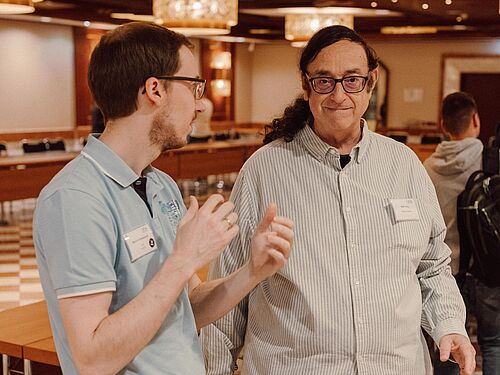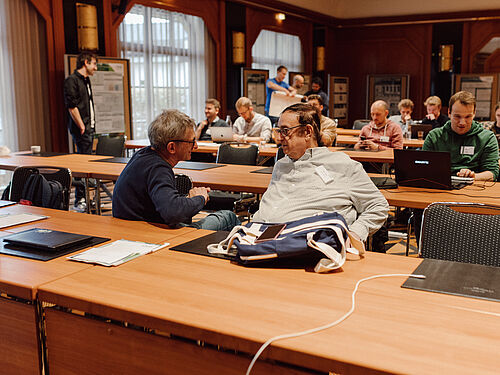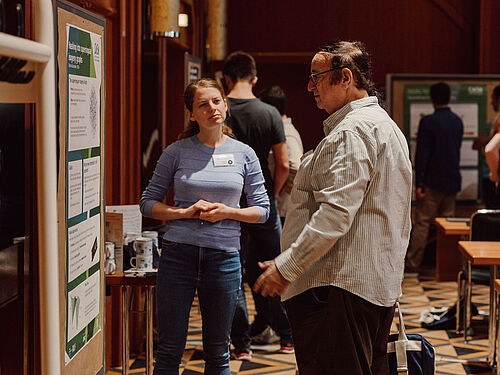The eight Advisory Board members of the Cluster of Excellence CASA have the task of evaluating the work of the Cluster from an outside perspective. Mordechai M. "Moti" Yung has been on the board from the very beginning. In addition to his work at Google, the renowned cryptographer and computer security scientist holds a teaching position as adjunct professor at Columbia University, USA. Before joining Google, he worked at RSA Laboratories and Snap. Yung is well known for his work in the field of Cryptovirology and Kleptography. Click here for an overview of his publications.
Moti Yung joined this year's CASA retreat, together with Advisory Board Member Srjdan Capkun (read interview here) in Königswinter for all three days and was able to get a deeper impression of the cluster's work. In the interview he talks about his duties as Advisory Board member and his impressions of the retreat.
What's your current research interest?
I have many interests (laughs). However, my work is split between more theoretical investigations regarding primary cryptography and its users in systems and practical applied research work and support of systems development in Google. In this sense, concerning CASA activities, my work touches on all possible activities of the Cluster, of course with a concentration on cryptography.
From your point of view, what is the best way to ensure that practical thinking is a part of fundamental research?
It’s important to do both: look at the issues we are interested in practicing and formalize the more theoretical models. I can explain it by a work I was part of in the last years. At my work within Google, I was involved to initiate the Corona Contact Tracing, which Google and Apple developed. We had engaged with the health authority of the German government to help with the Corona App in Germany. There we were dealing with the question of how to take theoretical notions like pseudorandom signals, embed them in systems, put them together with Bluetooth signaling, and make sure it becomes a product with all the other constraints. I found a project here at CASA that looked at it and I engaged in a brief discussion about it.
So you’re enjoying the Retreat for exchange and learning?
I am always learning! it is important to exchange ideas. Discussions with students and faculty members are always stimulating. I hope they are saying the same about me (laughs).
You’re an advisory board member from the beginning. How does the Cluster of Excellence develop from your point of view?
It’s going extremely well in all aspects of academia and shows good potential for other aspects like the collaboration between different groups and collaboration with industry, which is harder for academia. The academic excellence is, as was expected, very high and the growth and magnitude of strength are even higher than I expected.
What do you think we have to improve?
Besides the ideas I’m sharing with the Management Board I have a general statement, something I always take care of, when I’m advising – regardless if it’s in companies or academia: Don’t let the initial success fail you!
From an international perspective: How do you look at cyber security in Germany?
Especially in the last five years, Germany has put a lot of effort into cyber security, and it is going well. There is a lot of talent and cybersecurity is an area that requires a lot of attention and a lot of specialized knowledge. There are a few leading centers and other universities are developing good skills. I have seen also in industry in Germany similar efforts, in Google, there are many activities in it's research and development center in Germany.
General note: In case of using gender-assigning attributes we include all those who consider themselves in this gender regardless of their own biological sex.
"Don’t let the initial success fail you!" Interview with Advisory Board Member Moti Yung

Moti Yung in conversation with Marvin Kowalewski at the poster session Copyright: CASA, Björn Schreiber

Moti Yung in conversation with Christof Paar Copyright: CASA, Björn Schreiber

Moti Yung with Sabrina Kunzweiler at the Poster Session Copyright: CASA, Björn Schreiber

